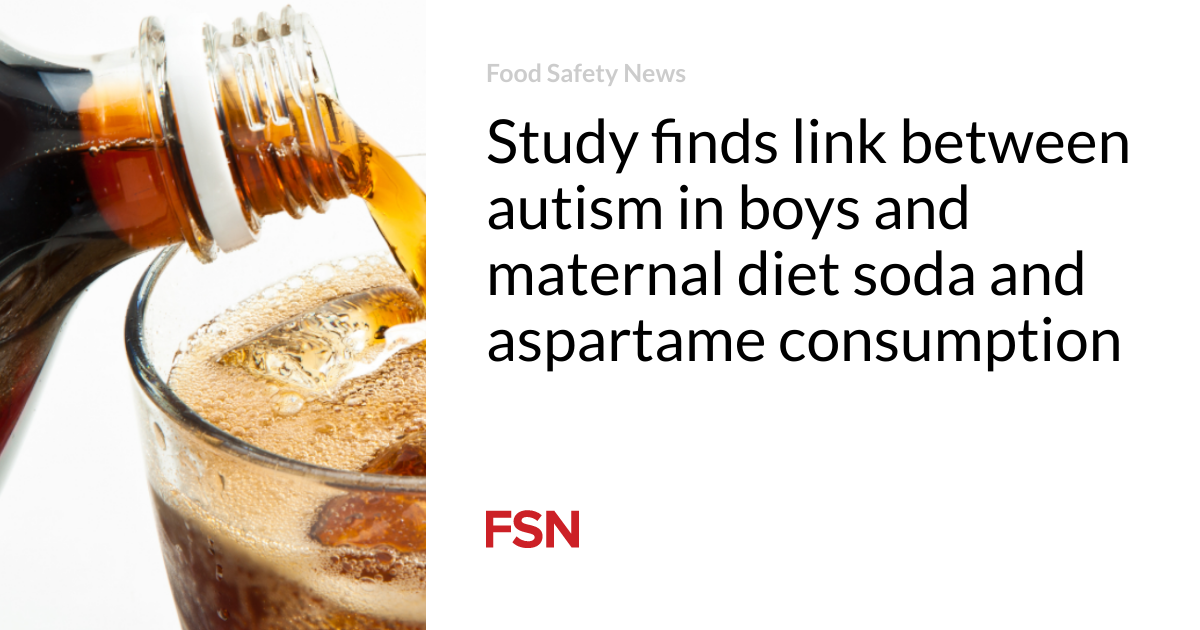A recently published study led by researchers at The University of Texas Health Science Center at San Antonio (UT Health San Antonio) shows a potential association between the diagnosis of autism in boys and their mothers’ consumption of diet soda or aspartame during pregnancy or breastfeeding.
Aspartame is an artificial sweetener widely used in various food and beverage products since the 1980s. It is commonly found in diet drinks, chewing gum, gelatin, ice cream, dairy products such as yogurt, breakfast cereal, toothpaste, and even medications such as cough drops and chewable vitamins.
The study found that boys who had been diagnosed with autism were more than three times as likely as neurotypically developing boys to have been born to mothers who reported consuming one or more servings per day of diet soda or equivalent amounts of aspartame during pregnancy or breastfeeding. The study did not find any statistically significant association in female offspring.
“It’s important to note that these associations do not establish causality,” Raymond F. Palmer, the senior author of the paper and a professor in the Department of Family and Community Medicine at UT Health San Antonio, told the school’s newsroom.
“However, when considered in conjunction with earlier research indicating increased prematurity and cardiometabolic health issues in infants and children exposed to these products during pregnancy, our findings raise important questions about potential neurological impacts that warrant further investigation.”
Aspartame under increased scrutiny
These results come two months after the International Agency for Research on Cancer (IARC), the World Health Organization (WHO), and the Food and Agriculture Organization of the United Nations (FAO) and the Joint Expert Committee on Food Additives (JECFA) released their aspartame hazard and risk assessment results. The IARC classified aspartame as “possibly carcinogenic to humans” because of “limited evidence” for carcinogenicity in humans. Meanwhile, the JECFA reaffirmed the acceptable daily intake of 40 mg/kg body weight for aspartame.
It also comes after researchers from the Florida State University College of Medicine unveiled findings from an ongoing study revealing a potential link between aspartame consumption and learning and memory deficits in mice.
The study, titled “Daily Early-Life Exposures to Diet Soda and Aspartame Are Associated with Autism in Males: A Case-Control Study,” was published in the international journal Nutrients on Aug. 29, 2023. The lead author of the study, Sharon Parten Fowler, an adjunct assistant professor of medicine at UT Health San Antonio, collaborated with researchers from the School of Public Health campuses in San Antonio and Houston of The University of Texas Health Science Center at Houston, as well as the School of Public Health at San Diego State University.
The case-control study collected retrospective dietary recalls of diet beverages and aspartame consumption during pregnancy or breastfeeding from mothers of 235 offspring with autism spectrum disorder and 121 offspring with typical neurological development, serving as the control group.
Study results
From these dietary recalls, exposure odds ratios were calculated for all offspring diagnosed with autism and a subset of offspring with non-regressive (early-onset) autism. The results showed that males diagnosed with autism had more than triple the odds of being exposed daily to these products during pregnancy or breastfeeding compared to male controls. These exposure odds were even more pronounced among males with non-regressive autism.
Fowler emphasized, “While our findings do not establish a direct causal link, they certainly warrant further investigation. It’s crucial to consider the potential risk, especially for boys, and exercise caution regarding the use of these products during pregnancy and breastfeeding until more comprehensive assessments are available.”
The study’s conclusion emphasized the need for additional research, including larger sample sizes for both genders and prospective measurements of dietary exposures and additional risk factors. Further research is needed to evaluate these associations in different study populations and to determine whether they extend to the risk of autism spectrum disorder in all offspring.
The full study can be found here.
(To sign up for a free subscription to Food Safety News, click here.)
This content was originally published here.
